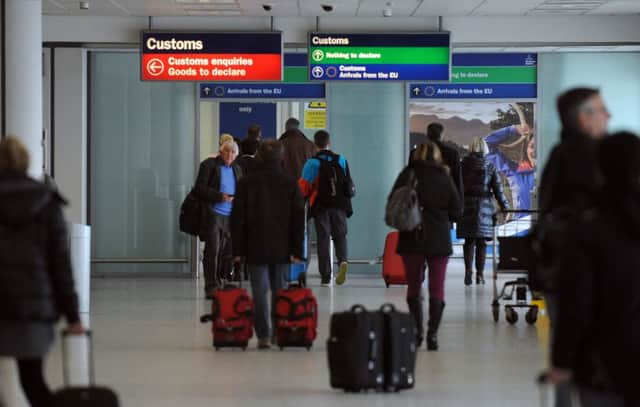Mixed response to SNP air passenger duty plans


The Scottish Government has published the findings of its consultation on proposals for a replacement tax from 2018 after receiving 160 responses. It says the replacement tax is intended to boost Scotland’s international connectivity and contribute to sustainable growth.
About half of respondents agreed with the government’s policy objectives.
Advertisement
Hide AdAdvertisement
Hide AdThe SNP administration has also promised to reduce APD by 50 per cent from April 2018 onwards and eventually abolish the tax.
Almost half of those responding to the consultation have objected to the policy or raised concerns about the potential impact of the reduction in APD.
The negative environmental impact of an increase in air travel was the most commonly cited reason for concern.
Finance Secretary Derek Mackay said: “UK APD is one of the most expensive taxes of its kind in the world. It continues to act as a barrier to Scotland’s ability to secure new direct international routes and maintain existing ones.”
He said the consultation results will “allow us to take the next step and begin the process of developing plans on how a Scottish replacement tax should be structured and operated to help boost Scotland’s international connectivity and economic competitiveness while giving due consideration to environmental issues. Our plan will be to start reducing the overall burden of a new tax in Scotland from April 2018, implement a 50 per cent reduction in full by the end of the current Scottish Parliament, and then abolish the tax entirely when public finances allow,” he said.
Liz Cameron, chief executive of Scottish Chambers of Commerce, said: “The Scottish Government has a unique opportunity to make use of their devolved power and send out a clear message to the world that Scotland is open for business. A substantial reduction in our taxes on air travel will enable Scottish businesses to grow globally and also attract international investment into Scotland.”
Hugh Aitken, director of business organisation CBI Scotland, said the plan was “a welcome opportunity to give businesses a clear competitive boost, providing an estimated additional economic activity worth £200 million each year”.
But Green MSP Andy Wightman said: “Ministers would do well to consider ways to use the new tax powers to promote social justice rather than simply giving a tax break to an already under-taxed, heavily-polluting industry and wealthy frequent fliers.”